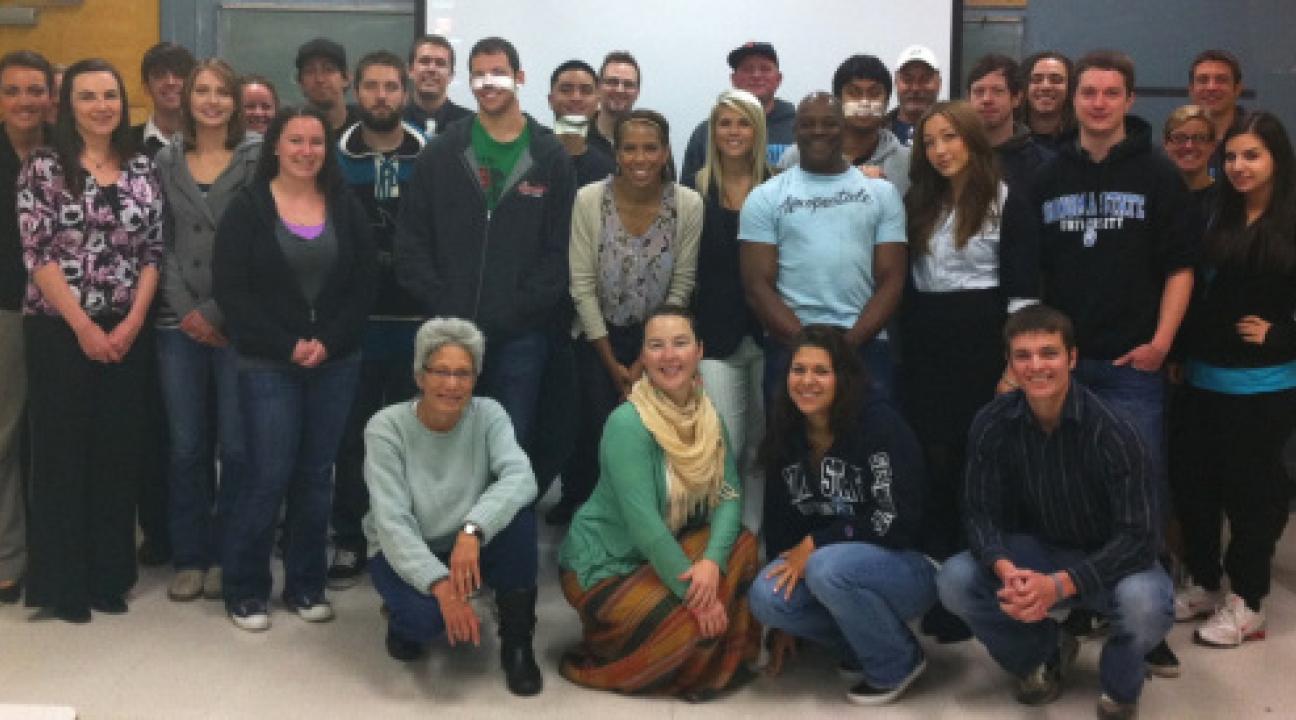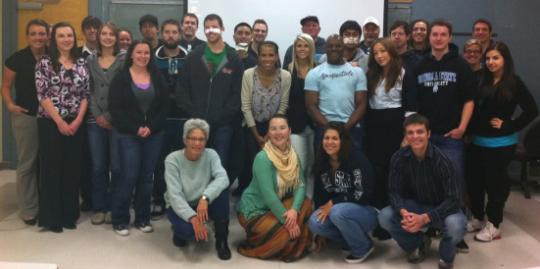University & Community Partnership: Dr. Liz Thach
"With service-learning, students have the chance to apply theoretical learning to a real organizational setting. By helping community partners, students learned how to apply effective change management techniques."
Dr. Liz Thach, Professor of Management and Wine Business, explains the invaluable experience that her service-learning graduate level business course brings to her students. Establishing a service-learning course, like any other class, has its very own set of challenges for faculty members such as finding local non-profit organizations, and ensuring learning objectives are fulfilled during the project. Dr. Liz Thach decided to take on these challenges with the help of the Center for Community Engagement and use service-learning in her Business 590E Leading Change course to address goals of helping local non-profit organizations while teaching her students effective change management skills.
In this Masters of Business Administration course, students in teams of four get paired up with a local non-profit agencies such as Mentor Me Petaluma,The Minerva Project, and the National Alliance on Mental Illness (NAMI). Val Richman of Mentor Me Petaluma stated, "I was impressed with the variety of backgrounds of the students in Dr. Thach's graduate business course. Their questions, points of view and comments were all different, which led to wide-ranging conversations and outcomes." Throughout the semester, students work with their community partners to try and understand problems that might be occurring within the agency. By using change management techniques, the graduate students provide recommendations to better help the organization run more efficiently and effectively. At the end of the course, the non-profit organizations are invited to a presentation to hear the student's recommendations.
Dr. Thach stated how even the barriers of this project proved to help the students learn more. "With projects like these, you never know exactly what is going to happen. There certainly are surprises along the way and it is important to turn these surprises into valuable learning opportunities." She sets a great example for her students by explaining that "these things happen in real life and it helps to talk about how to handle them professionally."Not only do students gain marketable skills from this hands-on learning project, but also local non-profit agencies are also greatly benefiting "I'm so glad that there is the mechanism in the executive MBA program that allows the graduate level to connect with the community," stated George Moskoff of the Minerva Project. "They came up with many great ideas that could benefit our organization." Reciprocity is a fundamental aspect of what service-learning should entail and this project is a great example of what a service-learning course should be like.For more information on this course, please contact Dr. Liz Thach at [email protected].

Author: Natalie Hambalek



